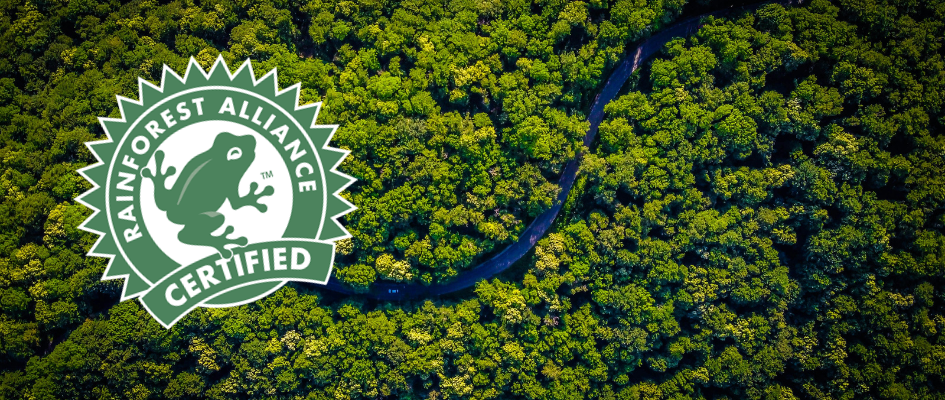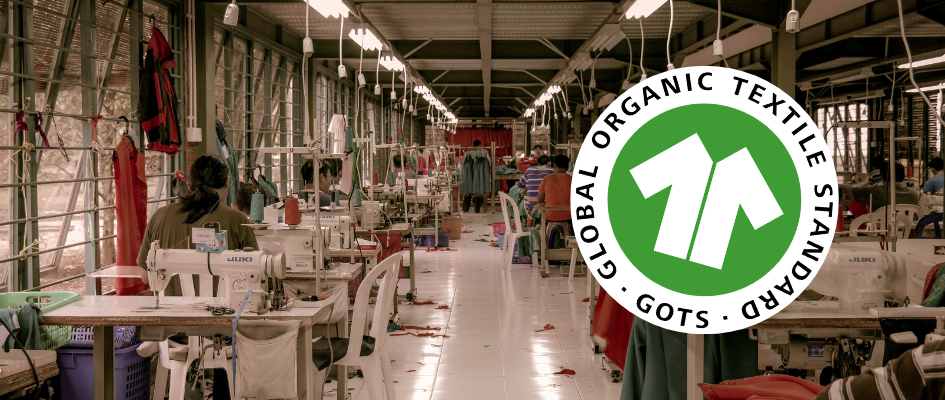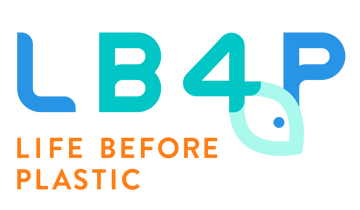Are Eco Labels Greenwashing? A Review of the Rainforest Alliance, GOTS & FSC
Can we trust eco labels?
Written by Charlie Gill.
Estimated reading time: 8 minutes
Have you ever stopped to think about those little eco symbols adorning the products you purchase? What exactly do they signify, and can they genuinely guide us towards making more sustainable choices?
In the realm of eco-conscious shopping, eco labels reign supreme, but are they just greenwashing or do they hold genuine value in steering us towards ethical consumption?
Let's delve deeper into the world of eco labels to unravel their significance and impact.
Quicklinks:
- What is the purpose in eco labels?
- Why are eco labels important?
- What are the types of eco labels?
- An analysis: The Rainforest Alliance
- An analysis: Global Organic Textile Certification (GOTS)
- An analysis: Forest Stewardship Council (FSC)
The Purpose of Eco Labels
Eco labels serve as beacons of sustainability, designed to provide consumers with insights into a product's origins, manufacturing processes, and environmental impact. From the Energy Star to Rainforest Alliance, Marine Stewardship Council to B Corp, these labels offer a glimpse behind the curtain, revealing crucial information about a product's journey from conception to consumption.
While eco labels aim to empower consumers with knowledge, not all labels are created equal. Some offer robust certifications backed by rigorous standards, while others fall prey to greenwashing—misleading environmental claims that undermine their credibility. It's important for us as consumers to be able to distinguish between trustworthy labels and those that are only paying lip service to sustainability.
The Importance of Eco Labels
Eco labels play a pivotal role in shaping consumer behaviour and driving positive change in the industry. By choosing products with eco labels, consumers can vote with their wallets, signalling a demand for more sustainable practices. Eco labels incentivise companies to improve their environmental performance in order to qualify for the label, fostering a culture of ethical innovation and responsible production.
Types of Eco Labels
Eco labels come in various forms, each serving a different purpose. Third-party certifications, such as FairTrade and Forest Stewardship Council, attest to a product's compliance with predefined criteria, providing consumers with assurance of ethical sourcing and production practices. Self-declared environmental labels are often labels like ‘compostable’ or the recycling three arrows. As self-declared, it’s difficult to know whether you’re able to trust the company.
Spotlight on Eco Labels
Let's delve into three eco labels certified by third parties and evaluate their trustworthiness.

The Rainforest Alliance
The Rainforest Alliance seal serves as a beacon for products sourced from certified farms or forests, promising adherence to specific criteria aimed at environmental conservation and ethical practices. These criteria encompass protecting existing ecosystems, conserving water resources, and ensuring fair treatment of workers. However, despite its noble intentions, the Rainforest Alliance certification has faced scrutiny and criticism.
One significant concern revolves around the standards' shortcomings, particularly regarding labour practices and pesticide usage. While the certification mandates fair wages and prohibits forced or child labour, it falls short in ensuring living wages for workers and effectively banning hazardous pesticides. For instance, certain pesticides classified as highly hazardous are still permitted, posing health risks to both workers and ecosystems.
Instances of non-compliance and violations have tarnished the certification's reputation. In 2015, an investigation into tea plantations in Assam, India, revealed egregious labour violations, including child labour and unsafe working conditions, contradicting the Rainforest Alliance's standards. Although the Rainforest Alliance responded promptly by decertifying some farms, the incident underscored the inadequacy of annual audits in monitoring and enforcing compliance effectively.
Similarly, reports of labour exploitation and poor working conditions on banana and pineapple plantations in Latin America have raised doubts about the certification's efficacy in safeguarding workers' rights. While such cases may be isolated, they highlight the need for stronger oversight and enforcement mechanisms within the Rainforest Alliance certification process.
In essence, while the Rainforest Alliance certification aims to promote sustainable and ethical practices, its effectiveness hinges on stringent standards, rigorous monitoring, and robust enforcement mechanisms. As consumers we need to be mindful of this when purchasing.

GOTS (Global Organic Textile Standard)
As the leading standard for organic textiles, the Global Organic Textile Standard (GOTS) encompasses a comprehensive set of environmental, technical, and social criteria to promote sustainability throughout the textile supply chain. From fibre production to final product labelling, the GOTS certification aims to ensure transparency and integrity at every stage.
However, despite its commendable objectives, GOTS certification has encountered challenges and controversies, particularly regarding certification loopholes and fraudulent practices. While the certification guarantees certain environmental and social standards, such as the use of organic fibres and fair labour practices, it may not cover all aspects of sustainability comprehensively.
One notable limitation of the GOTS certification is its focus primarily on the processing and manufacturing stages of textile production, neglecting the upstream practices of crop farming. For instance, while GOTS-certified textiles boast organic fibres and eco-friendly processing methods, the certification does not address the environmental impacts of conventional farming practices, such as water consumption and pesticide use.
Instances of fraudulent practices, such as the falsification of raw cotton transaction certificates in India, have raised concerns about the integrity of the GOTS certification. The discovery of systematic fraud involving thousands of metric tons of unauthentic cotton underscores the need for stricter controls and enhanced oversight within the certification process.
Despite these challenges, the GOTS certification remains a valuable tool for promoting sustainable textile production and ethical consumption.

FSC (Forest Stewardship Council)
The Forest Stewardship Council (FSC) certification aims to promote responsible forestry practices and ensure the sustainable management of forests worldwide. Through rigorous standards and independent auditing, FSC certification seeks to protect biodiversity, uphold workers' rights, and safeguard indigenous communities' interests.
However, the FSC certification has faced numerous controversies and criticisms, casting doubt on its effectiveness in achieving sustainable forest management. Reports of illegal logging, human rights abuses, and environmental destruction in FSC-certified forests have raised questions about the certification's credibility and integrity.
One of the most significant challenges confronting FSC certification is the prevalence of greenwashing, whereby companies exploit the certification to mask unsustainable practices and deceive consumers. Instances of illegal logging in Europe's last old-growth forests, clear-cutting in habitats critical for endangered species, and indigenous land rights violations in Indonesia highlight the shortcomings of the FSC certification process.
The lack of transparency and accountability within the FSC certification system has further eroded trust in the certification's credibility. Despite being founded on principles of sustainability and social responsibility, the FSC certification has struggled to address systemic issues and implement meaningful reforms to address ongoing challenges.
While the FSC certification holds promise as a tool for promoting sustainable forest management, its effectiveness is contingent on addressing fundamental issues of governance, transparency, and accountability. It’s difficult to see past the numerous violations of their standard.
In navigating the landscape of eco labels, it's essential to remain discerning and informed. While no certification is flawless, eco labels serve as valuable tools in promoting sustainability and driving positive change in the industry. By critically evaluating eco labels and advocating for transparency and accountability, consumers can play a pivotal role in shaping a more ethical and environmentally conscious future.
So, the next time you reach for a product adorned with an eco label, remember the power you hold as a conscious consumer—your choices have the potential to spark meaningful change.
Enjoy this article? You may also be interested in,
- Ugly Sustainability: My non-aesthetic life
- 8 Recycling Tips You Need To Know
- Surprising Items You Didn't Know You Could Recycle
At Life Before Plastic, we will always provide free content for you to enjoy. If you would like to support us you can buy us a virtual coffee.
Video Transcript - Accessibility
Eco labels help us to make more informed decisions. For example, if you see a label that says "Fair Trade" on it, you automatically know that those farmers have been paid fairly. If consumers do favor Eco labels, then that's the perfect circumstance for businesses to become more environmentally and socially sustainable. However, not all of these labels are trustworthy, which would never lead to consumers buying it and leading to that innovation. It's important that the labels are reviewed and enforced to ensure that they're up to the standards that they claim they are.
There are three different types of eco labels under the International Organization of Standards. The one that we'll be focusing on is Type One. Type One eco labels are certified by a third party. The third party looks at principles and procedures for that product or service and looks at their compliance with preset criteria that they need to fulfill to receive that standard. They're only applicable for a certain amount of time, after which you have to reapply to get that label again.
Now let's review three examples of eco labels to see whether or not we can trust them.
The Rainforest Alliance seal or the little green frog that you see on products sometimes means that the product comes from a certified farm or forest. To receive that certification, the farm or forest has to fulfill certain criteria. This includes protecting existing ecosystems and restoring habitats, reducing water waste, preventing contaminated water, and ensuring that workers are paid a legal minimum wage, have fair working hours, access to accommodation, and that there is no forced or child labor. However, there are some shortfalls when it comes to the criteria. It lacks important provisions like paying living wages, mandatory risk assessments, and banning all pesticides. For example, certain pesticides that are classified as highly hazardous are still allowed to be used regardless of their potential health risk to the workers. In 2015, an investigation into tea plantations in Assam, India, uncovered some poor conditions, including child workers, pesticide use without protection, and damaged housing as accommodation for workers. These were all clear violations of the criteria under the Rainforest Alliance certificate. To their credit, the Rainforest Alliance responded quickly to these allegations and ended up decertifying some of these farms. But one of the key issues that came out of this was that the audits on the farms were only happening yearly, which wasn't enough to monitor working conditions. Another controversy emerged when Oxfam found poor working conditions in Latin America on banana and pineapple farms. Workers were working 12-hour days without enough compensation to survive. However, these cases are rare. It's worth thinking about whether it is possible to have a perfect certification where no farms fall through the cracks, and it's important to know what the certification covers. In the case of the banana and pineapple farms, the certification only covers legal minimum wage rather than a fair living wage.
The Global Organic Textile Standard (GOTS) is the leading standard for organic textiles. GOTS covers the environmental, social, and technical side of textiles. It's worth noting that clothing or textiles with the GOTS certification doesn't necessarily mean that it's 100% organic. The label can be applied when there's 70% certified organic materials in the product, and it is fully GOTS certified when a product is made up of 95% certified fibers. A lot goes into the manufacturing process of textiles, and the whole supply chain has to be certified for that end product to be GOTS certified. The criteria for something to be GOTS certified include the use of GOTS-approved dyes and chemicals, prohibition of environmentally hazardous substances, and ensuring the treatment of wastewater. The social conditions under GOTS mean that there must be freely chosen employment, no child labor, and remuneration of a living wage. One key issue though for this certification is that it doesn't cover the growing of crops. This can be quite a big exclusion when you consider the amount of water that is used in growing cotton, the insecticides that are used, and the poor working conditions of those working on the fields. None of this is covered by the GOTS certification. While it's great that the certification covers the rest of the supply chain, can you really consider something as organic if it hasn't been grown organically? Like the Rainforest Alliance, GOTS has had its fair share of controversy. In their own investigation in 2020, they discovered evidence of systematic fraud in India of raw cotton transaction certifications. Interestingly though, this was by GOTS themselves as they were running their monitoring program. Yes, there are flaws with the certification, but does that mean that we should get rid of it completely? Maybe there are just some more checks and balances needed to be put in place, or it could be considered if it could expand to the growing of crops themselves. The GOTS certification already does a lot for the supply chain and ensuring that textiles are produced more sustainably.
The Forest Stewardship Council (FSC) certification is designed to ensure that the management, harvesting, processing, and manufacturing of wood products meet the standard. There are several different steps within the criteria managing environmental and social effects. This includes ensuring that there is compliance with laws, improving the social and economic well-being of the workers, protecting the rights of indigenous peoples, conserving and restoring ecosystems, and improving conservation values. However, the FSC is highly contentious. Of all the Eco labels that we're talking about today, this is the one that is most called upon as being greenwashing. Greenpeace was a founding member of the FSC, but they withdrew their membership in 2018 after several reports by themselves and externally to the state of what was happening. Here are some of the controversies surrounding FSC certified forests and woodlands. The illegal logging of Europe's last old growth in Romania, which led to some journalists following the story being attacked with axes by the loggers. The illegal clear-cutting of the last habitat for Siberian tigers in Russia. Clearcuts of ancient rainforest in Indonesia without the informed consent or consultation of local indigenous people. And the rape and murder of locals protesting in the Congo against illegal logging of their forest, who were simply protesting because they were losing their water sources due to the deforestation. There are deep-rooted problems with the FSC certification, and with high-profile and pretty shocking stories coming out of FSC certified forests, it's difficult to see how they can be trusted. It needs a stronger standard with full transparency and enforcement of the standard. After hearing those stories, would you trust something that said it was FSC certified?
None of these certifications are perfect, and most importantly, we have to understand what we mean when we're talking about a specific certification. What is that product certified for? What are the criteria that it has to fulfill? When it comes to monitoring those certifications, what are the shortfalls? If they're only looking at paperwork rather than turning up unannounced and seeing what conditions are really like, can we really trust them?
So, do you think that Eco labels are greenwashing? I think it depends on the context, which doesn't help consumers much, as Eco labels are designed to do. That said, we have to consider what the alternative is. Not having any Eco labels won't help the state of environmental and social conditions either. Without these certifications in place, there's no way to find out which farms or supply chains that you're supporting. These Eco labels won't ever be perfect, but they can lead to those improvements in supply chains, and that might not be the case without them. Maybe they all need a little bit of work rather than removing them entirely.
Do you look at Eco labels when purchasing? Let's chat in the comments. If you enjoyed this video, make sure to subscribe for some more Eco content. Until next time.

